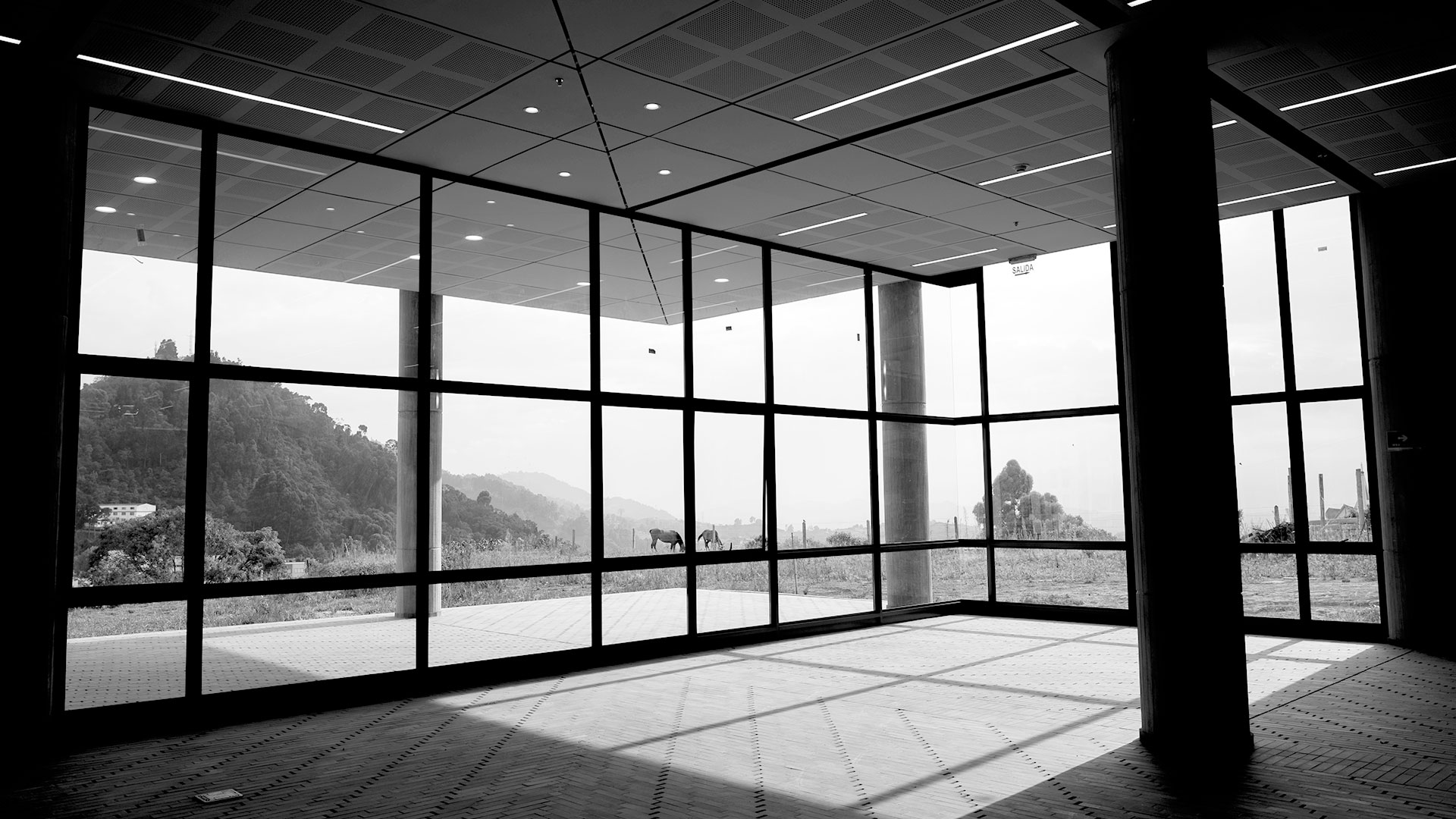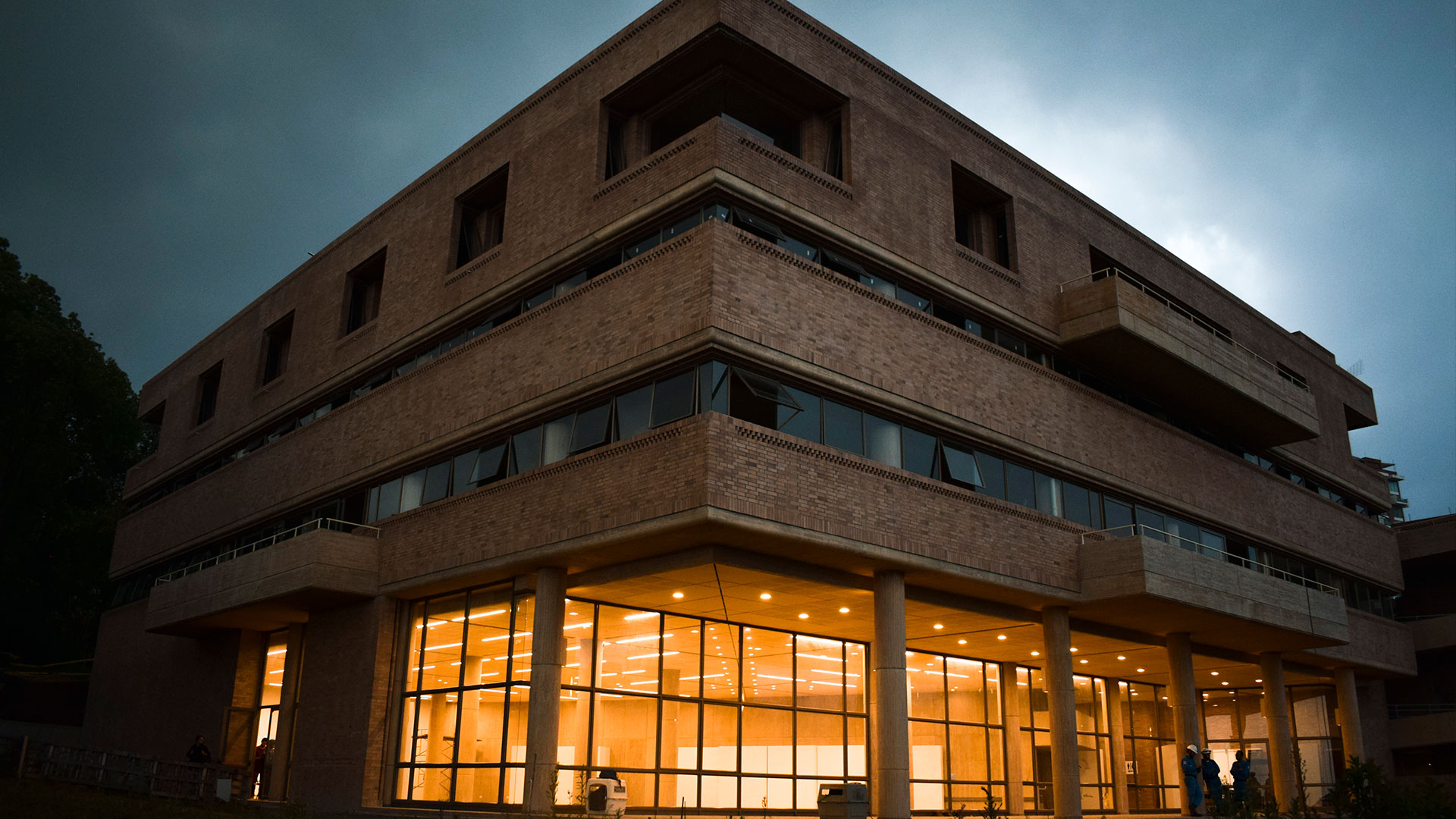| dc.contributor.author | Mazuera Zuluaga, Andrés Gustavo | spa |
| dc.contributor.author | Pabón Giraldo, Liliana Damaris | spa |
| dc.date.accessioned | 2020-07-01 00:00:00 | |
| dc.date.available | 2020-07-01 00:00:00 | |
| dc.date.issued | 2020-07-01 | |
| dc.identifier.issn | 1794-2918 | |
| dc.identifier.uri | https://doi.org/10.17151/jurid.2020.17.2.2 | |
| dc.description.abstract | Esta investigación discute las problemáticas de la Jurisdicción Especial para la Paz con relación a la jurisdicción internacional. Se analizará la jurisdicción material y personal, así como la ley aplicable a sus procedimientos, con el objetivo de identificar los escenarios en los cuales la JEP podría estar envuelta en un conflicto de foro. Por ello, el ámbito jurisdiccional de la Corte Penal Internacional, el principio de complementariedad, reconocimiento de amnistía en foros extranjeros, la jurisdicción universal y la extradición, serán temas que se abordarán a la luz de la JEP. Especialmente, este artículo ayuda a comprender las interacciones entre la JEP y los foros extranjeros respecto de la cosa juzgada y reconocimiento de sentencias. El principal objetivo de este artículo es establecer los posibles conflictos internacionales de jurisdicción de la Jurisdicción Especial para la Paz. Para ello, metodológicamente, esta investigación utiliza tanto un método teórico como un método analítico. En primer lugar, recurre a la legislación y jurisprudencia nacional y extranjera con el fin de determinar el régimen aplicable a la JEP. Asimismo, analiza los escenarios en los cuales los conflictos de jurisdicción podrían surgir y cómo éstos podrían afectar la efectividad de la JEP. En concreto, este artículo concluye que la jurisdicción de la JEP se solapa con la CPI. De igual modo, se refiere a la idea que los gobiernos extranjeros podrían iniciarprocedimientos paralelos en caso que consideraran que la amnistía y el perdón otorgados en Colombia no son razones suficientes para descartar la persecución penal o reparaciones civiles en sus propias jurisdicciones. | spa |
| dc.description.abstract | This research discusses the issues of the Special Jurisdiction for Peace in Colombia regarding its international jurisdiction. Subject matter jurisdiction, personal jurisdiction, and applicable law to its proceedings will be discussed in order to identify the scenarios where the SJP could come across a forum conflict. Thus, the scope of jurisdiction of the International Criminal Court (ICC), the application of the complementary principle, amnesty recognition in foreign forums, universal jurisdiction, and extradition will be studied vis-à-vis the SJP. More importantly, this paper will help to understand the relation between the SJP and foreign forums regarding res judicata and judgment recognition. The principal objective of this paper is to identify in which scenarios the SJP would come across with an international conflict of jurisdiction. Methodologically, this research draws on both theoretical and analytical methods. It refers to both domestic and international law, and case-law to determine the applicable legal framework to the SJP. By the same token, it analyzes in which scenarios conflicts of jurisdiction issues would arise and how these issues could undermine SJP’s effectiveness. In short, this paper concludes that the SJP has overlapping jurisdiction with the ICC. Likewise,it draws upon the idea that foreign governments could instate parallel proceeding should they find that amnesty and pardon in Colombia are not grounds for dismissing criminal charges or civil liability lawsuits in their own jurisdiction. | eng |
| dc.format.mimetype | application/pdf | eng |
| dc.language.iso | eng | eng |
| dc.publisher | Universidad de Caldas | spa |
| dc.rights.uri | https://creativecommons.org/licenses/by/4.0/ | eng |
| dc.source | https://revistasojs.ucaldas.edu.co/index.php/juridicas/article/view/2443 | eng |
| dc.subject | Special Jurisdiction for Peace | eng |
| dc.subject | conflict of jurisdiction | eng |
| dc.subject | amnesty and pardon | eng |
| dc.subject | Jurisdicción Especial para la Paz | spa |
| dc.subject | conflictos de jurisdicción | spa |
| dc.subject | amnistía y perdón | spa |
| dc.title | The special jurisdiction for peace in Colombia: possible International conflicts of jurisdiction | spa |
| dc.type | Artículo de revista | spa |
| dc.type | Sección Artículos | spa |
| dc.type | Journal Article | eng |
| dc.identifier.doi | 10.17151/jurid.2020.17.2.2 | |
| dc.identifier.eissn | 2590-8928 | |
| dc.relation.citationendpage | 52 | |
| dc.relation.citationissue | 2 | spa |
| dc.relation.citationstartpage | 29 | |
| dc.relation.citationvolume | 17 | spa |
| dc.relation.ispartofjournal | Jurídicas | spa |
| dc.relation.references | Ambos, K. (2018). La ley de amnistía (Ley 1820 de 2016) y el marco jurídico internacional. In F. Cortés Rodas, K. Ambos y J. Zuluaga (coords.), Justicia transicional y derecho penal internacional (pp.119-166). Bogotá: Siglo del hombre editores, Centro de Estudios de Derecho Penal y Procesal Penal Latinoamericano (CEDPAL) de la Georg-August-Universität Göttingen, Instituto de Filosofía de la Universidad de Antioquia, Fundación Konrad Adenauer-Programa Estado de Derecho para Latinoamérica y Alexander von Humboldt Stiftung/Foundation | eng |
| dc.relation.references | Angermaier, C. (2004). The ICC and amnesty: ¿Can the court accommodate a model of restorative justice?. Eyes on the ICC, 1(131), 131-144. | eng |
| dc.relation.references | Arsanjani, M.H. (1999). The international criminal court and national amnesty laws. Cambridge University Press, 93, 65-68. | eng |
| dc.relation.references | Bhuta, N. (2014). The Ninth Life of the Alien Torts Statute - Kiobel and after. Journal of International Criminal Justice, 12(3), 539-550. DOI: https://doi.org/10.1093/jicj/mqu038 | eng |
| dc.relation.references | Bucher, A. (2015). La compétence universelle civile. In Collected courses of the Hague academy of international law, volume 372 (pp. 9-127). DOI: http://dx.doi.org/10.1163/1875-8096_pplrdc_A9789004289376_01 | eng |
| dc.relation.references | Burbank, S. B. (2004). Jurisdictional Conflict and Jurisdictional Equilibration: Paths to a Via Media. Houston journal of international law, 26(2), 385-400. | eng |
| dc.relation.references | Buxbaum, H.L. (2009). Territory, territoriality, and the resolution of jurisdictional conflict. American journal of comparative law, 57(3), 631-676. | eng |
| dc.relation.references | Colombia. (2016). Final Peace Agreement. | eng |
| dc.relation.references | Colombia. (2017). Bill proposal Statutory Law for justice administration of SJP. No. 08. | eng |
| dc.relation.references | Congress of Colombia. (2012). Legislative Act 01. July 31, 2012. | eng |
| dc.relation.references | Congress of Colombia. (2016). Act 1820. December 30, 2016. D.O No. 50.102 | eng |
| dc.relation.references | Congress of Colombia. (2017). Legislative Act 01. April 04, 2017. | eng |
| dc.relation.references | Congress of Colombia. (2018). Act 1922. July 18, 2018. D.O No. 50.658 | eng |
| dc.relation.references | Congress of Colombia. (2019). Act 1957. June 8, 2019. D.O No. 50.976 | eng |
| dc.relation.references | Constitutional Court of Colombia. Ruling C-579 of 2013. Magistrado Ponente: Jorge Ignacio Pretelt Chaljub. | eng |
| dc.relation.references | Constitutional Court of Colombia. Ruling C-674 of 2017. Magistrado Ponente: Luis Guillermo Guerrero Pérez. | eng |
| dc.relation.references | Constitutional Court of Colombia. Ruling C-80 of 2018. Magistrado Ponente: Antonio José Lizarazo Ocampo. | eng |
| dc.relation.references | Cryer, R. (2014). Come together?: civil and criminal jurisdiction in Kiobel from an international law perspective. Journal of International Criminal Justice, 12(3), 579-592. DOI: https://doi.org/10.1093/jicj/mqu025 | eng |
| dc.relation.references | Cuniberti, G. (2005). Forum non conveniens and the Brussels convention. International and comparative law quarterly, 54(4), 973-981. | eng |
| dc.relation.references | De Greiff, P. & Angermaier, C. (2004). Theorizing transitional justice, The ICC and amnesty: Can the Court Accommodate a Model of Restorative Justice?. Eyes on the ICC, 1(131). | eng |
| dc.relation.references | Drumbl, M.A. (2001). Juridical and Jurisdictional Disconnects. Finnish Yearbook of International Lawyer, 12, 119-141. | eng |
| dc.relation.references | Elster, J. (2012). Justice, Truth, Peace. Nomos, 51, 78-97. Retrieved from https://www.jstor.org/stable/24220124?seq=1 | eng |
| dc.relation.references | Gallagher, K. (2009). Universal Jurisdiction in Practice: Efforts to hold Donald Rumsfeld and other High – level United States Officials accountable for torture. Journal of International Criminal Justice, 7(5), 1087-1116. DOI: https://doi.org/10.1093/jicj/mqp077 | eng |
| dc.relation.references | Goldschmidt, W. (1952). Jurisdicción Internacional. Revista Española de Derecho Internacional, 5(1), 163-179. | eng |
| dc.relation.references | Goldsmith, J.L. & Goodman, R. (2002). U.S. Civil Litigation and International Terrorism. University of Chicago Law School Chicago Unbound: Public Law and Legal Theory Working Paper, 26, 1-34. | eng |
| dc.relation.references | Han, S.D. (2006). The International Criminal Court and National Amnesty. Auckland University Law Review, 12(97), 97-124. | eng |
| dc.relation.references | Hartley, T.C. (2015). International commercial litigation. Cambridge: Cambridge University Press. | eng |
| dc.relation.references | Hillebrecht, C., Huneeus, A. & Borda, S. (2018). The Judicialization of Peace. Harvard International Law Journal, Summer, 59(2), 279-330. | eng |
| dc.relation.references | International Criminal Court (ICC). (2013). Policy Paper on Preliminary Examinations OTP. Retrieved from https://www.icc-cpi.int/iccdocs/otp/otp-policy_paper_preliminary_examinations_2013-eng.pdf | eng |
| dc.relation.references | ICTY Trial Chamber. (1998). Prosecutor v. Furundzija, (IT-95-17/1), Judgment of 10 December 10. | eng |
| dc.relation.references | Isau, A. (2015). The International Criminal Court (ICC): Jurisdictional Basis and Status. Nnamdi Azikiwe University Journal of International Law and Jurisprudence, 6(34), 34-49. | eng |
| dc.relation.references | Kaleck, W. (2009). From Pinochet to Rumsfeld: Universal Jurisdiction in Europe 1998-2008. Michigan Journal of International Law, 30(3), 927-980. | eng |
| dc.relation.references | Kelly, C.D. (2017). Contextual Complementarity: Assessing Unwillingness and Genuine Prosecutions in Colombia’s Special Jurisdiction for Peace. Georgetown Journal of International Law, 48, 807-838. | eng |
| dc.relation.references | Kemp, S. (2009). La investigación penal y su relación con la Jurisdicción, la extradición, la cooperación y las políticas penales. In J. Almqvist & C. Espósito (coords.), Justicia transicional en Iberoamérica (pp. 313-342). Madrid: Centro de Estudios Políticos y Constitucionales. | eng |
| dc.relation.references | Olásolo, H. (2009). Admisibilidad de situaciones y casos objeto de procesos de justicia de transición ante la Corte Penal Internacional. In J. Almqvist & C. Espósito (coords.), Justicia transicional en Iberoamérica (pp. 257-291). Madrid: Centro de Estudios Políticos y Constitucionales. | eng |
| dc.relation.references | O’Shea, A. (2000). Pinochet and Beyond: The International Implications of Amnesty. South African Journal on Human Rights, 16(4), 642-668. DOI: https://doi.org/10.1080/02587203.2000.11827609 | eng |
| dc.relation.references | Posch, W. (2004). Resolving business disputes through litigation or other alternatives: the effects of jurisdictional rules and recognition practice. Houston journal of international law, 26(2), 363-383. | eng |
| dc.relation.references | Radosavljevic, D. (2008). Restorative Justice under the ICC Penalty Regime. Law and Practice of International Courts and Tribunals, 7(2), 235-255. | eng |
| dc.relation.references | Ryngaert, C. (2006). Universal Jurisdiction in an ICC Era: a Role to Play for EU member states with the support of the European Unión. European Journal of Crime Criminal Law and Criminal Justice, 14(46). | eng |
| dc.relation.references | Special Jurisdiction for Peace. Peace Tribunal. Revising Chamber. Decision SRT-AE-030/2019. | eng |
| dc.relation.references | Special Jurisdiction for Peace. Peace Tribunal. Revising Chamber. Decision Decision SRT-ST014/2018. | eng |
| dc.relation.references | Special Jurisdiction for Peace. Peace Tribunal. Truth and Responsibility Chamber. Decision TP-SCRVRST-003/2018 | eng |
| dc.relation.references | Special Jurisdiction for Peace. Peace Tribunal. Appeals Chamber. Decision TPSA-024/2018 | eng |
| dc.relation.references | Special Jurisdiction for Peace. Peace Tribunal. Revising Chamber. Decision STR-ST-018/2018 | eng |
| dc.relation.references | Special Jurisdiction for Peace. Peace Tribunal. Appeals Chamber. Decision TP-SA-013/2018 | eng |
| dc.relation.references | Special Jurisdiction for Peace. Peace Tribunal. Revising Chamber. Decision SRT-AE-046/2019 | eng |
| dc.relation.references | Special Jurisdiction for Peace. Peace Tribunal. Appeals Chamber. Decision TP-SA-120/2019 | eng |
| dc.relation.references | Special Jurisdiction for Peace. Peace Tribunal. Revising Chamber. Decision SRT-ST-095/2020 | eng |
| dc.relation.references | Stewart, J. (2015). Transitional Justice in Colombia and the Role of the International Criminal Court. Bogotá- Colombia: Statement. Retrieved from http://www.iccnow.org/documents/DPs_Keynote_Speech_on_Transitional_Justice_in_Colombia_and_the_Role_of_the_ICC_English.pdf | eng |
| dc.relation.references | Stewart, J. (2018). The Role of the ICC in the Transitional Justice Process in Colombia. Bogotá - Colombia. Retrieved from https://www.icc-cpi.int/iccdocs/otp/201805SpeechDP.pdf | eng |
| dc.relation.references | Supreme Court of the United States. (2013). Kiobel v Royal Dutch Petroleum Co., 569 U. S., 108. Retrieved from https://supreme.justia.com/cases/federal/us/569/108/ | eng |
| dc.relation.references | Teitel, R.T. (2014). Globalizing transitional justice. New York: Oxford University Press. | eng |
| dc.relation.references | Urueña, R. (2017). Prosecutorial Politics: the ICC’s Influence in Colombian Peace Processes, 2003–2017. The American Society of International Law, 111(1), 104-125 | eng |
| dc.relation.references | United States Court of Appeals 11th Circuit. (2014). Cardona, et al. V. Chiquita Brands International, Inc. No. 12-14898. Retrieved from https://law.justia.com/cases/federal/appellate-courts/ca11/12-14898/12-14898-2014-07-24.html | eng |
| dc.relation.references | Williams, M.S., Nagy, R. & Elster, J. (2012). Transitional Justice. New York: University Press. | eng |
| dc.relation.references | Yusuf, H.O. (2010). Transitional justice, judicial accountability and rule of law. New York: Routledge. | eng |
| dc.relation.references | Zuluaga, J. (2018). Concepción y evolución de la justicia penal para la terminación del conflicto armado en Colombia. In F. Cortés Rodas, K. Ambos, J. Zuluaga (coords.), Justicia transicional y derecho penal internacional (pp. 201-238). Bogotá: Siglo del Hombre Editores, Centro de Estudios de Derecho Penal y Procesal Penal Latinoamericano (CEDPAL) de la Georg-August-Universität Göttingen, Instituto de Filosofía de la Universidad de Antioquia, Fundación Konrad AdenauerPrograma Estado de Derecho para Latinoamérica y Alexander von Humboldt Stiftung/Foundation. | eng |
| dc.rights.accessrights | info:eu-repo/semantics/openAccess | eng |
| dc.title.translated | La jurisdicción especial para la paz en Colombia: posibles conflictos internacionales de jurisdicción | eng |
| dc.type.coar | http://purl.org/coar/resource_type/c_6501 | eng |
| dc.type.coar | http://purl.org/coar/resource_type/c_6501 | eng |
| dc.type.content | Text | eng |
| dc.type.driver | info:eu-repo/semantics/article | eng |
| dc.type.redcol | http://purl.org/redcol/resource_type/ARTREF | eng |
| dc.type.version | info:eu-repo/semantics/publishedVersion | eng |
| dc.relation.citationedition | Núm. 2 , Año 2020 : Julio - Diciembre | spa |
| dc.relation.bitstream | https://revistasojs.ucaldas.edu.co/index.php/juridicas/article/download/2443/2281 | |
| dc.type.coarversion | http://purl.org/coar/version/c_970fb48d4fbd8a85 | eng |
| dc.rights.coar | http://purl.org/coar/access_right/c_abf2 | eng |





